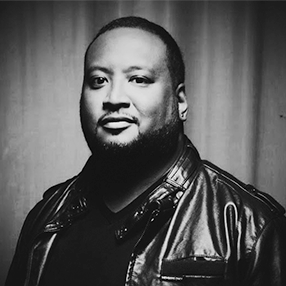Aubade with Edits
Both terrible storytellers, both bad
With a punchline
Too, bad with a tale—short, long
Or otherwise. Both, a little bit
Of college & plenty of experience—
My parents. Their hands told
On them, & their cooking enough
To keep mouths too busy
For small talk but not for lies, gold plated
Lies. “Yes, still waiting
For Jordans or a Walkman,
& please, no knock-offs.” “No mom,
Not the fakes.” “No, it’s not the same
As the others, dad.”
O edits, O tweaks that transcend
Trouble—you, neither fake
Nor fib even when half-awake in the new
Light when parents revise stories or future
Visions so a paycheck opens
Wider than my busy-begging
Mouth. Edits, not lies when dad dies
Alone, broke to the bone. His version
Better than all the unforeseen costs
Death accrues. Edits, unheard
Requests or complaints from mom’s eyes.
Her last-month-tongue entangled,
Unable to spin or spend even a nickel’s
Worth of lies. O Edits, sun’s up cutting
Sleep & dream with light & heat.
I do nothing while narratives move
Along the ceiling: I’m ok. I’m ok.
I’m ok. Soon I will tell the lie
To the mirror, to my shoes & car
Keys, to my kiss-goodbye love,
To my needling co-workers at lunch
Time, & the commute home again.
A kiss hello & a kiss for baby, too
Until back to dream
When my dead parents visit
With new things to say.
Copyright © 2022 by F. Douglas Brown. Originally published in Poem-a-Day on January 14, 2022, by the Academy of American Poets.
“An edit is not a lie, but a tool to get me closer to the truth, the heart-work I seem to be fleshing out on the page. This poem’s truth hauls: 1. reckoning with one’s deceased parents; 2. just living life does not fully engage grief and depression. The couplets do march the speaker onward, toward resolving any looming sorrow while also reconsidering the hard no’s of parenting, which are often tied more to stringent budgets than draconian demands. The speaker’s reminiscing becomes an opportunity to perpetually learn from the parents. Thus making the work of healing possible.”
—F. Douglas Brown

